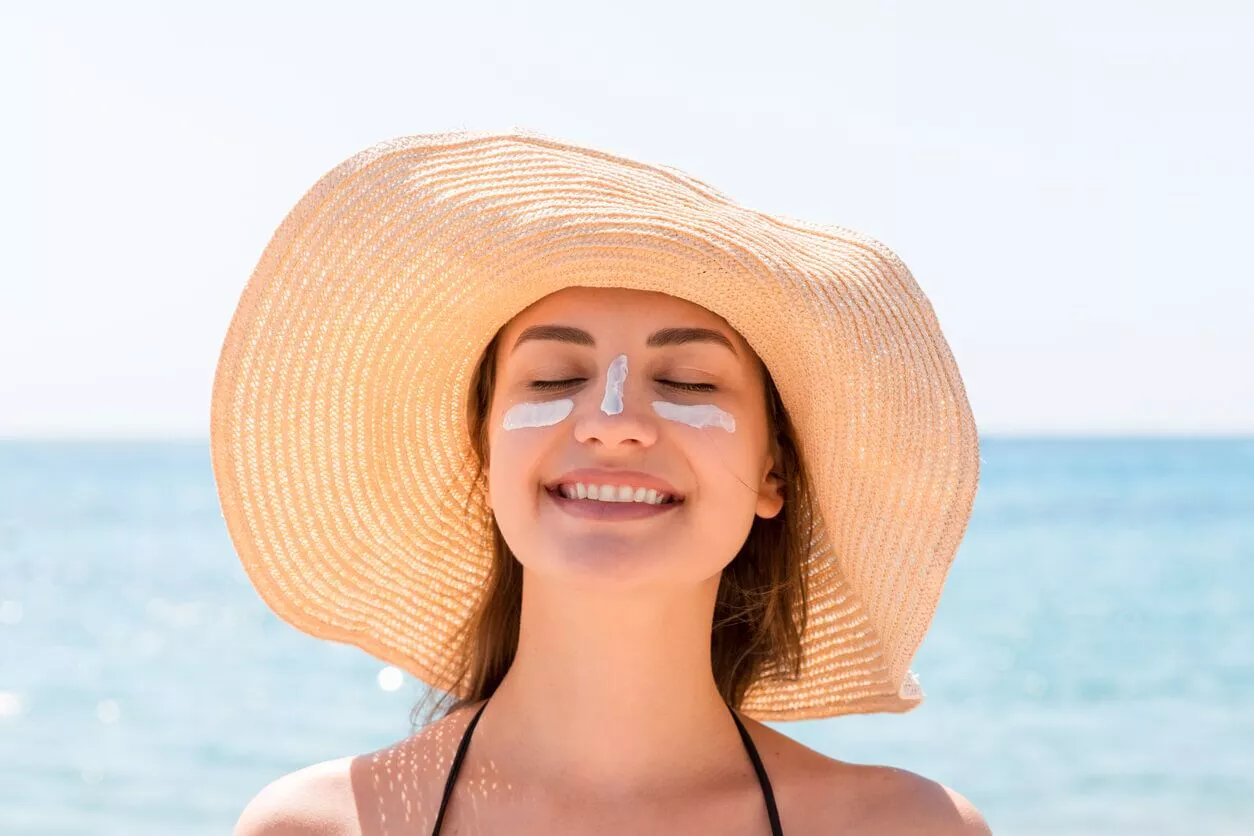Wearing sunscreen is the most important thing you can do for your skin.
We can’t always avoid getting too much sun, and there’s no denying that spending a day outside.
However, you must take all the necessary precautions to keep your skin looking its best for as long as possible. Don’t let premature skin aging depress you. Prevention is the key!
What does SPF stand for?
SPF is an abbreviation for sun protection factor, which is a method of calculating how much UV radiation is required to burn protected skin (when compared to unprotected skin). The higher the SPF, the longer it takes the sun to burn you.
It is important to note that SPF numbers have nothing to do with how long it takes to get a sunburn. The intensity of the sun (and the amount of ultraviolet radiation it emits) can vary greatly throughout the day—it will take you longer to burn at nine a.m. than it will at one p.m.
It’s more about the level of protection you get from the sun’s rays than it is about how long you can spend outside.
What SPF number should you use?
Although everyone’s skin is different and their needs vary, experts recommend using SPF 30 or higher. According to studies, SPF 30 provides 97% UVB protection. A higher SPF, such as SPF 50, can increase that to 98%.
No sunscreen, regardless of SPF, can provide 100% protection—not even SPF 100.
If you want to be cautious, use a sunscreen with a high SPF for the best protection.
Is a broad spectrum important?
Another term to look for on a sunscreen label is “broad spectrum.” UVA and UVB rays are the two types of UV rays that travel from the sun to the earth.
With prolonged exposure, UVA rays prematurely age the skin, which is why they are also known as ageing rays. UVA rays, which can even pass through window glass and reach the skin, are the most likely cause of age-related fine lines, wrinkles, and age spots.
UVB rays have a more immediate effect, resulting in sunburn. Although they cannot pass through window glass, they can be extremely uncomfortable and cause sun poisoning. UVB rays are also important in terms of health risks later in life.
Broad spectrum protection ensures that your sunscreen shields you from both types of ultraviolet radiation and can lower your risk of skin cancer from chronic exposure.
Is it possible to find waterproof sunscreen?
Some sunscreens advertise themselves as being waterproof, but there is no such thing. Unfortunately, the concept of waterproof sunscreen can provide you with a false sense of security, especially if you spend a lot of time at the pool or beach.
Water-resistant sunscreens are what you want to look for. While they will not completely repel water from the skin’s surface and will eventually need to be reapplied, they provide more protection than those that dissolve immediately.
How frequently should you reapply?
As nice as it would be to have one application of sunscreen last all day, it is critical that you reapply as needed. If you’re going to be spending a lot of time outside, reapply sunscreen at least every two hours. If you’re sweating profusely, swimming, or simply spending time on a boat, you should reapply even sooner.
When reapplying sunscreen, make sure you use enough to keep you safe. Many people apply their sunscreen insufficiently, leaving them vulnerable to the sun’s rays.
Don’t forget about the smaller areas, such as the tops of your feet, ears, and neck. SPF lip balm can also keep your lips from burning. Remember, if it has skin and is exposed to the sun, it can burn!
Here is the sunscreen available at Partha Dental Skin & Hair Clinic:
PACOME ULTRA MATTE SUNSCREEN GEL SPF 60 PA+++
Pacome Sunscreen Is Enriched With Vit E Giving Ultra Matte Oily Free light Finish, non greasy, Pacome Sunscreen Has Spf 60, Pa+++ Broad Spectrum UV A / UV B, Paraben Free, Sulphate Free, Sweat & Water Resistant, Dermatologically Tested, FDA Approved, Clinically Proven Actives, For all Skin types.
DIRECTIONS FOR USE
Apply Pacome Ultra Matte Sunscreen Generously to All Exposed Skin Before 15-30 Mins of Sun Exposure. If You are out for long periods, reapply Pacome sunscreen every two hours. Avoid eye contact. Discontinue If There Is Burning, Itching, Or Stinging On The Skin.


